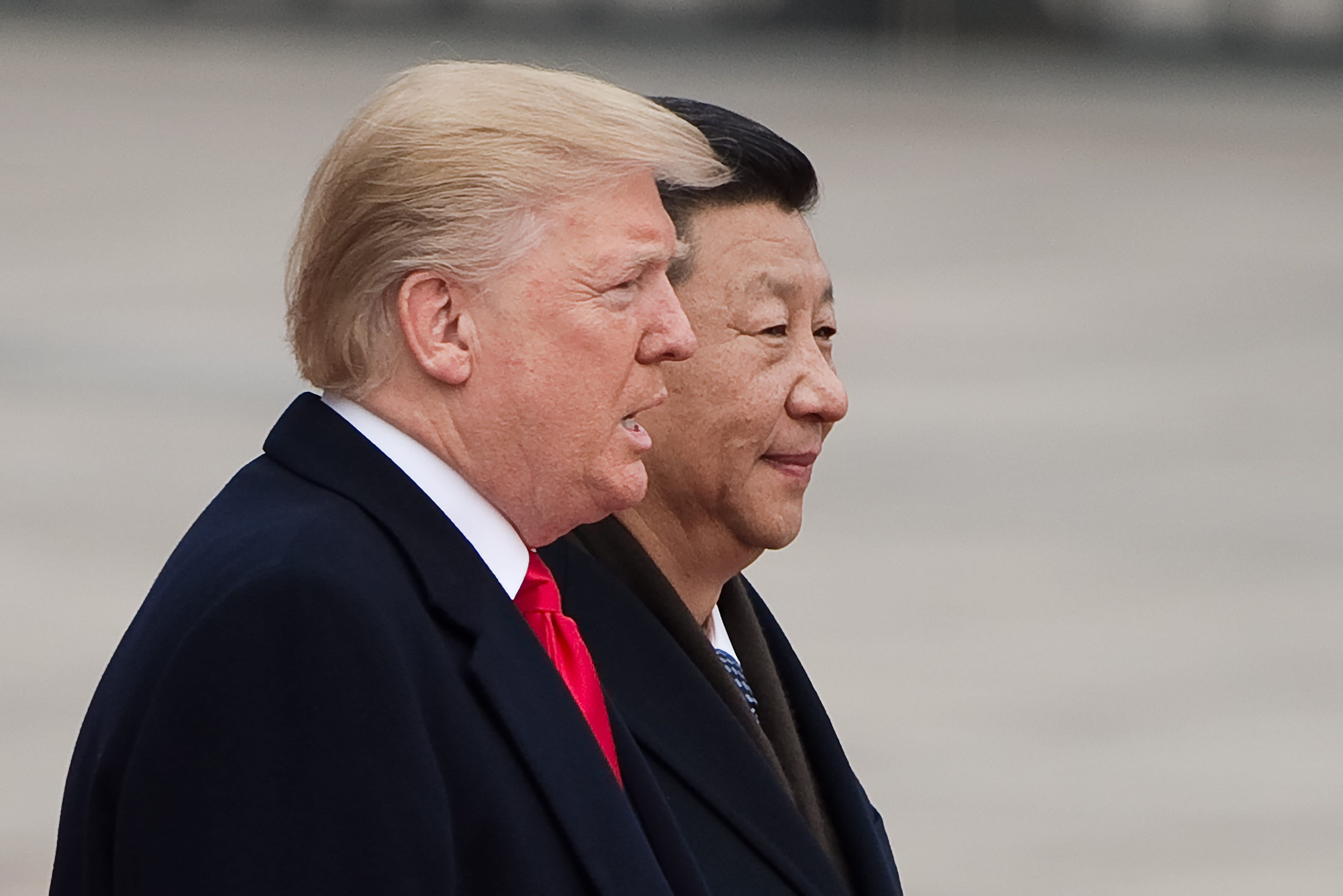China’s President Xi Jinping and U.S. President Donald Trump attend a welcome ceremony at the Great Hall of the People in Beijing on November 9, 2017.
Nicholas Asfouri | AFP | Getty Images
U.S. consumers are getting increasingly anxious about the trade war with China despite a recent thaw in the tensions ahead of the trade talks next month.
The University of Michigan’s Surveys of Consumers showed in September a near record number of consumers cited trade policies as a negative factor weighing on the economy.
“Trade policies have had the greatest negative impact on consumers, with a near record one-third of all consumers negatively mentioning trade policies in September when asked to explain in their own words the factors underlying their economic expectations,” Richard Curtin, Surveys of Consumers’ chief economist, said in a statement.
The result came as the U.S. and China are slated to resume trade talks on Oct. 10 in Washington. Tensions have somewhat eased ahead of the negotiation as China confirmed the country had purchased a “considerable” amount of U.S. soybeans and pork products. President Donald Trump had also delayed some of the tariffs by two weeks at China’s request.
Still, the two economic superpowers still have many structural issues they have yet to sort out. White House trade advisor Peter Navarro previously said these issues include cyber intrusion into U.S. business networks, forced technology transfer, intellectual property theft and currency manipulation.
An index for consumer confidence rose to 93.2 in September from 89.8 in August, according to the University of Michigan.
“Despite the high levels of confidence, consumers have also expressed rising levels of economic uncertainty,” Curtin said. “Some of these concerns are rooted in partisanship, some due to conditions in the global economy (Brexit, Iran, Saudi Arabia, China), and some are tied to domestic economic policies.”
